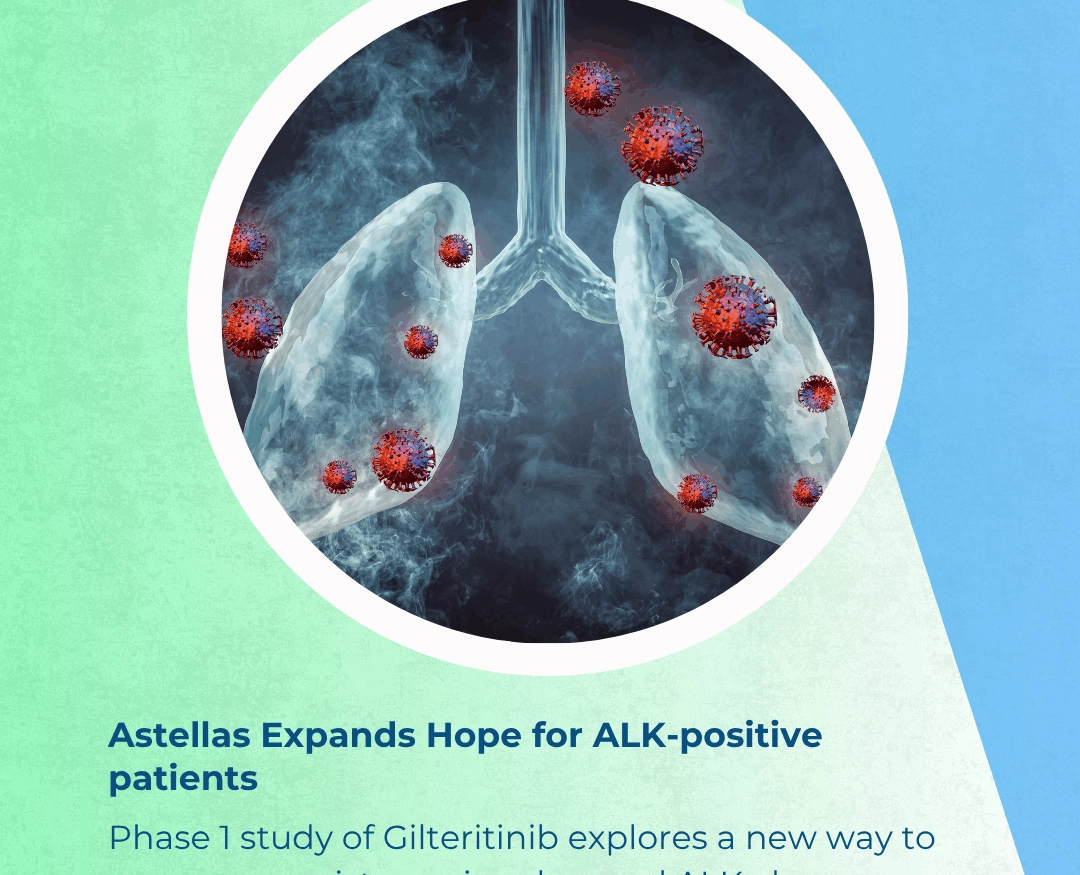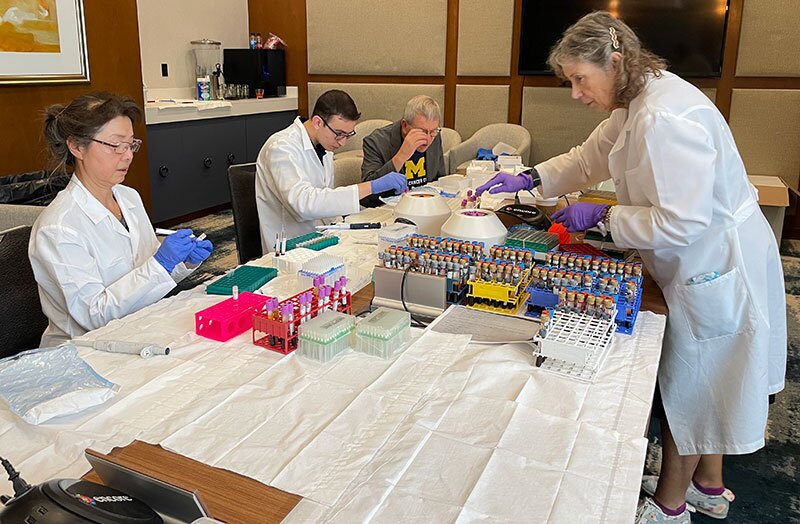For years, people with ALK-positive lung cancer have faced a frustrating reality: while targeted therapies have transformed outcomes for stage IV disease, treatment for earlier stages has lagged behind. For stage I–III cancers—where surgery, chemo, or radiation may be a cure—there’s been little clarity on whether targeted drugs could reduce recurrence and improve survival.
That’s starting to change. A growing trend has emerged regarding biomarker testing across all stages of lung cancer. A new wave of clinical trials is now exploring the role of ALK inhibitors before and after surgery, and even in patients who can’t undergo surgery.
ALINA: Alectinib Approved Post-Surgery
An important study, ALINA (NCT03456076), compared Alectinib to chemotherapy after surgery. The results were clear: Alectinib cut recurrence risk significantly. Based on these findings, the FDA approved Alectinib in 2024 for stage IB–IIIA ALK-positive NSCLC after surgery—a milestone that officially brought targeted therapy into earlier disease.
NAUTIKA-1: Before and After Surgery
Some researchers believe it’s best to strike even earlier. The NAUTIKA-1 trial (NCT04302025) is testing Alectinib given both before surgery (to shrink tumors) and after surgery (to prevent recurrence). This “bookend” approach could lead to deeper, longer-lasting remissions.
Studies in China
Other trials are underway internationally, including studies of Ensartinib as therapy after surgery (NCT05341583) and WX-0593, a next-generation ALK inhibitor given before surgery (NCT05765877).
The Overlooked Group: Unresectable Stage II-III
For patients whose cancer can’t be removed surgically, research is far thinner. Standard care is chemoradiation, followed by immunotherapy with Durvalumab. But immunotherapy has shown little benefit for ALK-positive patients. The HORIZON-1 trial (NCT05170204) is now comparing Alectinib to Durvalumab in this setting—but because patients are randomized, some will end up on Durvalumab.
Why These Trials Matter
These studies are about more than numbers. They represent a shift toward bringing the benefits of ALK inhibitors earlier—when cure is still possible. For years, patients with early-stage ALK-positive disease had to accept observation or chemotherapy. Now, clinical trials are beginning to rewrite that story.
If you or someone you know has stage I–III ALK-positive NSCLC, ask your oncologist about trial options. Participation may offer access to the best available therapies today—and help shape the standard of care tomorrow.
Clinical Trials Currently Recruiting for ALK-positive Cancers (Spreadsheet).
NEW: ALK lung cancer clinical finder
ALK Positive is seeking more information about the experiences of those diagnosed with ALK-positive lung cancer. They have created a survey with many points of interest, including the experiences of those who have participated in clinical trials. The survey is confidential and approved by a research governing body. To complete the survey, please click here: ALK-positive Lung Cancer Registry and Survey




